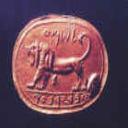Yahoo Answers is shutting down on 4 May 2021 (Eastern Time) and the Yahoo Answers website is now in read-only mode. There will be no changes to other Yahoo properties or services, or your Yahoo account. You can find more information about the Yahoo Answers shutdown and how to download your data on this help page.
For Jews: Are these versions of the Tanakh correct?
http://www.jewishvirtuallibrary.org/jsource/Bible/...
I ask because a couple of Jewish posters have said that Christians use a poor translation. These are two that I often use, so I'd like to know if they're correct. If yes, is one better than the other? If not, is there a better online version?
Also, in the first one you sometimes find G-d, with the hyphen, but also GOD in block caps, but no hypthen. Does anybody know what is the distinction?
Why, Mama_Pajama, how nice to see you. Since you've blocked me, I didn't expect you'd see my question.
BR549, Hi. I'm a nondenominational Christian, but I have something to learn from everybody.
13 Answers
- allonyoavLv 71 decade agoFavourite answer
Both of them are based on the JPS translation. It is an old translation that is in the public domain (which is why it is found on the internet) but is very literal and not seen as a good translation as such- it does not take context and variations into account. Another site which uses it and has the Hebrew as well is http://www.mechon-mamre.org/
Unfortunately, the newer translations where translators have taken multiple factes into account and made sure the translations are more accurate reflections of the meaning, are generally still in copyright and thus not available on the internet.
Probably one of the best online translations is the one at Chabad.
http://www.chabad.org/library/article_cdo/aid/6325...
What is nice about this translation is that it also has the commentary of Rashi translated (just click the link on the top right of the text to see the Rashi commentary)
- 1 decade ago
I have found the JPS Tanakh to be a modern but generally reliable translation. I also enjoy reading the Artscroll/Mesorah Tanach, which is more orthodox.
There is probably no perfect translation. We do not fully understand everything about biblical Hebrew today.
Many Orthodox Jews use G-d because they consider "God" to be a divine name that should not be printed out in full on perishable materials like paper.
GOD in block caps probably reflects the most sacred name of God, YHWH, which is not pronounced.
- 1 decade ago
Christian translations make alterations to support the idea that Jesus could be the Messiah. Christians are so used to seeing this that they tend to gloss over the changes and accept them as simple word choice. That's not the case -- they are theologically-motivated alterations.
There are two different names used for G-d in the texts. One is Elohim, the other is the sacred name which we don't pronounce. There's an old convention of using LORD in block caps to indicate the sacred name (this comes from the practice of saying 'Adonai' instead ('master' or 'lord') when chanting Torah. Since 'Lord' has taken on such strong Christian connotations, some Jewish versions use GOD instead to indicate the Tetragrammaton.
- lawrencegrossmanLv 51 decade ago
I did my studying from a Haftorah. It has the Hebrew one one side of the page and the English opposite it. Go to an Orthodox synagogue. They will be able to tell you where you can get the best translation of the Tanakh. Remember, the Torah has to be copied letter by letter from a previous one. It is then checked to make sure there is not even one letter that is wrong.
- Aunt LayaLv 41 decade ago
There's a basic limitation when you study the bible in English. Even if the translations are *good* they are not always literal. That's because the Hebrew words have a dimension that can not be completely translated. Here's an example with the very first word: In Hebrew "B'resheet" is translated as "In the beginning". The root of the Hebrew word actually comes from "rosh" which means "head". In other words the view of time is not linear as in beginning and end but more like a body with creation as the head (thought? speech?). While a good English translation will give you the story line, it won't give you the depth of the original language and all that it encompasses. One more example: When G.d created woman the actual word used translates as "built". Once again, we have a deeper meaning because the root of that word contains "understanding"... that means woman was created with significant level of understanding... that's a whole other post! :-)
Here's one more: the Hebrew word for tabernacle is "Mishkan". That word has at its root the feminine aspect of G.d, you don't get that from the English word. See what I mean? Guess what else? The word for neighbor in Hebrew "Shachen" has the same root! But "love your neighbor as your self" does not use that word at all, "v'ahavta l'recha c'mocha" which could actually be translated as "love your fellow because he is like you". Wild, huh? This doesn't even begin to scratch the surface and my skills are limited.
Enjoy the journey.
- ✡mama pajama✡Lv 71 decade ago
For a complete Tanakh, I agree completely with allonyoav ( even from my not too adept level of Hebrew understanding )
When I study with a Hebrew/English lexicon I have discovered I like the chabad translation, but for some parts of the Torah ( first five books) I like the line by line translation from World Ort http://bible.ort.org/books/torahd5.asp
You can even hear the Hebrew chanted with the little mic
But for the overall Tanakh..bookmark that link allonyoav gave you, it's the best I've found. :)
- MLv 71 decade ago
"Correct" is answered this way:
Can a Ballerina dance in a Space Suit?
No; all translations are flawed.
Christian perspective on "Tanakh" has developed its own liturgies so that "correct" translations are unnecessary.
Judaism has both traditional and "modernist" perspectives on "Tanakh". Traditional Judaism utilizes translations and at the same time also utilizes supporting liturgies for comprehension including "Torah Sh'be Ctav" (Written Torah), "Torah She'be alPeh" (Oral Torah), "Talmud" (Study of Torah), Mishnah, Midrashim (Rabbinic Explanations of Torah), Zoharic writings etc.
The "modernist" sects of Judaism such as "Reform" are founded on a denial of the Tanakh (specifically Torah) as G-d-given and therefore are its members are not obligated to learn. They basically say whatever they want on the meanings, though their understandings aren't necessarily related to what the Tanakh teaches and instead have understandings based on what makes them feel.
- mr. rooLv 41 decade ago
Yes, I'd say they were good translations; I'm a little more familiar with the JPS. I'd respect what alonyoav has to say.
- 1 decade ago
If you were trying to be Orthodox, they would be a good translations. I noticed that both of them used the name "HaShem" for the personal name of G-d. I don't want to offend anybody, but to call YHVH "the Name" is as disrespectful as your own child calling you "that Guy". Besides, you are not Orthodox, are you? I thought you were Messianic.
I also like this one: http://www.mechon-mamre.org/p/pt/pt0.htm
- Anonymous1 decade ago
I use the Stone's Edition, Chumash & Tanakh, I find them really good.




